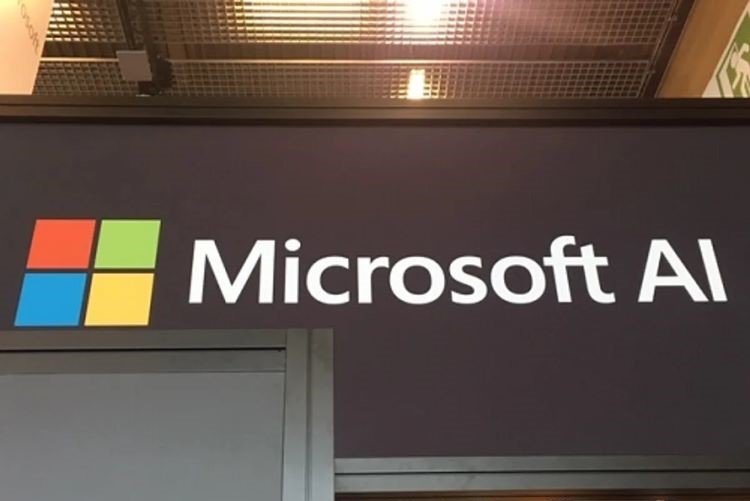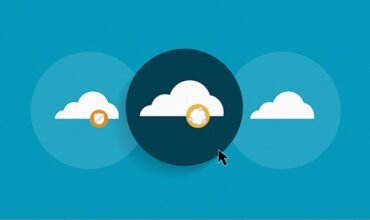Microsoft is investing $3.3 billion in the AI data center in Wisconsin.
Microsoft has announced a broad investment package designed to strengthen the role of Southeast Wisconsin as a hub for AI-powered economic activity, innovation, and job creation. These investments include $3.3B in cloud computing and AI infrastructure, the creation of the country’s first manufacturing-focused AI co-innovation lab, and an AI skilling initiative to equip more than 100,000 of the state’s residents with essential AI skills. President Joe Biden will join Microsoft President Brad Smith at Gateway Technical College to announce the new investment.
“Wisconsin has a rich and storied legacy of innovation and ingenuity in manufacturing,” said Brad Smith, Vice Chair and President of Microsoft. “We will use the power of AI to help advance the next generation of manufacturing companies, skills and jobs in Wisconsin and across the country. This is what a big company can do to build a strong foundation for every medium, small and start-up company and non-profit everywhere.”
These investments will be rolled out in a four-part strategy designed to create long-term benefits for the state’s economy and job market.
Investing in cloud and AI infrastructure
First, Microsoft will invest $3.3B between now and the end of 2026 to expand its national cloud and AI infrastructure capacity through the development of a state-of-the-art datacenter campus in Mount Pleasant, Wisconsin. The project is expected to bring an influx of 2,300 union construction jobs to the area by 2025, as well as providing long-term employment opportunities over the next several years. This new infrastructure will help enable companies in Wisconsin and across the country to develop, deploy and use the world’s most advanced cloud services and AI applications to grow, modernize and improve their products and enterprises.
Along with building a physical data center, Microsoft will partner with Gateway Technical College to build a Data Center Academy to train and certify more than 1,000 students in five years to work in the new data center and IT sector jobs created in the area.
“This is a watershed moment for Wisconsin and a critical part of our work to build a 21st-century workforce and economy in the Badger State,” said Governor Tony Evers. “Microsoft is a blue-chip corporation that recognizes the strength of Wisconsin’s workers, infrastructure, economy, and our quality of life. Microsoft has chosen to locate and invest here because they know the future is here in Wisconsin.”
Transforming businesses of all sizes in every industry
Second, to help build a thriving regional AI innovation economy, Microsoft will establish a manufacturing focused AI Co-Innovation Lab on the campus of the University of Wisconsin-Milwaukee, the first of its kind in the United States. This lab will connect Wisconsin manufacturers and other companies with Microsoft’s AI experts and developers to design and prototype AI and cloud solutions to improve and accelerate their work and grow their business. This lab will aim to serve 270 Wisconsin companies by 2030, including 135 manufacturing businesses.
The lab will connect with TitletownTech in Green Bay, which was co-founded in 2017 and is funded in part by Microsoft and the Green Bay Packers. Microsoft and the Packers are similarly partnering to help fund the new lab in Milwaukee, which will be staffed in part by Microsoft AI experts and venture experts from TitletownTech.
“The Green Bay Packers are excited to continue our partnership with Microsoft, which we first established with TitletownTech near Lambeau Field, and now will expand and enhance as we collaborate with the AI Co-Innovation Lab,” said Mark Murphy, President and CEO of the Green Bay Packers.
Creating a future-ready workforce
Third, reflecting the critical role of education and training in AI transformation, Microsoft will partner with United Way Wisconsin, United Way Racine, and other community partners, to upskill more than 100,000 people across Wisconsin by 2030 on generative AI. This curriculum will help train residents to use new applications, including Microsoft Copilot, a suite of Microsoft AI services that enhance productivity and creativity.
In addition, Microsoft will work with Gateway Technical College to train and certify 3,000 local AI software developers and provide opportunities for 1,000 local business, civic and government leaders to participate in immersive bootcamps where they can learn how to effectively adopt generative AI into their organizations.
These initiatives underscore Microsoft’s commitment to equipping the workforce with the tools needed for success in an increasingly AI-driven economy.
Reinforcing the community’s central role
And finally, a strong and vibrant economy isn’t possible without a strong and vibrant community. That’s why Microsoft will invest in a series of long-term local education and youth employment programs to support the very community that is supporting us.
In partnership with the Racine Unified School District (RUSD), Microsoft will work with Girls in STEM to expand its program to two additional RUSD middle schools. This expansion will provide access to STEM education for more than 500 middle school-aged girls over the next five years. Working with Racine County, Microsoft will support their Summer Youth Employment Program, matching at least 125 young people (16-18 years old) with local employers to receive soft skills and on the job training annually.
Microsoft will also continue to distribute Equity Through Technology and STEAM Grant Funds to the more than 12,000 people across Racine County engaged in United Way programs. Announced in 2023, these grants help local nonprofits address disparities and support under-resourced communities through the use of technology. Through investment and partnerships with local community organizations, Microsoft will look to contribute to a thriving and growing Southeastern Wisconsin, helping support a community where opportunity is available for everyone.
These announcements build on Wisconsin’s heritage of business innovation and Microsoft’s history of investment in the state. In 2017, Microsoft announced TechSpark, an ecosystem building program to accelerate economic opportunity and job creation now active in all 50 states. Microsoft has invested in the startup ecosystem in Wisconsin through TitletownTech, a partnership with the Green Bay Packers, in computer science and digital skilling with local partners like gener8tor, in digital inclusion with Microsoft Airband, and even local journalism with the Northeast Wisconsin News Lab.
Investing in the environment
Mindful that the expansion of its business must be done in a manner consistent with protecting the environment and expanding affordable energy access for everyone, Microsoft has partnered with National Grid Renewables to build a new 250 megawatt solar project in Wisconsin that will begin operating in 2027. This additional solar power means that by 2027, Microsoft will exceed 4,000 megawatts of flowing into the local grid – an amount of power equivalent to what’s needed to power more than 3 million homes. As part of this work, Microsoft and National Grid Renewables will jointly contribute $20 million over the term of the agreement to a community fund to support under-resourced communities and communities disproportionately impacted by pollution.
We are working to ensure water is managed responsibly. The new datacenter will use recycled water by employing a closed loop cooling system that does not require any additional water after startup. This is a major step towards sustainability and responsible resource management. A relatively small portion of the facility will use water for cooling, but only when the temperature outside is very warm.
For more information, press only:




